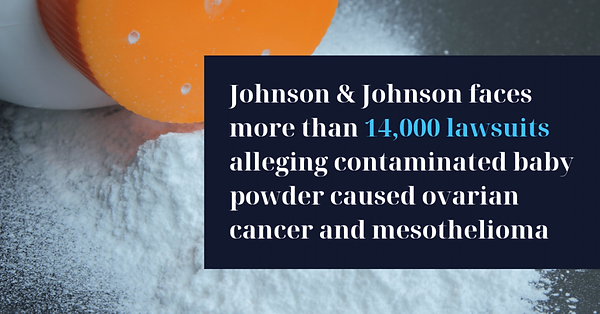
Johnson & Johnson has been fighting lawsuits for several years from thousands of people across the country who believe their cancers are linked to traces of asbestos in talcum powder. The plaintiffs suffer from ovarian cancer, other gynecological cancers, lung cancer, mesothelioma and others. They claim the cancers developed after years of using talcum powder. Recent confidential documents from within the company show that Johnson & Johnson researchers were concerned as far back as 1969 that the powder contained dangerous levels of a kind of asbestos called tremolite.
Asbestos deposits often wind through deposits of talc, so when talc is mined near asbestos, it is not unusual for traces of asbestos to be in the talc. Johnson & Johnson points out that no workers who mine the talc have tested positive for asbestos-related diseases. While the health care products giant insists there is no scientific evidence linking talcum powder to cancer, memos from executives in the 1970s express concern for the safety of the powder and the decision to keep their worries confidential.
Asbestos in talcum powder is only one way in which one can be exposed to the potentially deadly substance, and it is common for many to suffer at once from exposure. This can be through the negligence of an employer or the indifference of a product manufacturer
- Claimant used Talcum Powder for 4 or more years Claimant was diagnosed with Ovarian Cancer or Fallopian Tube Cancer in 2006 or later.
- Claimant must have undergone chemotherapy treatment.
- Claimant’s current age is 70 or younger C.
- Claimant must not have been diagnosed with the BRCA (Breast Cancer Susceptibility Gene).
- Claimant has not signed up with another Attorney.
